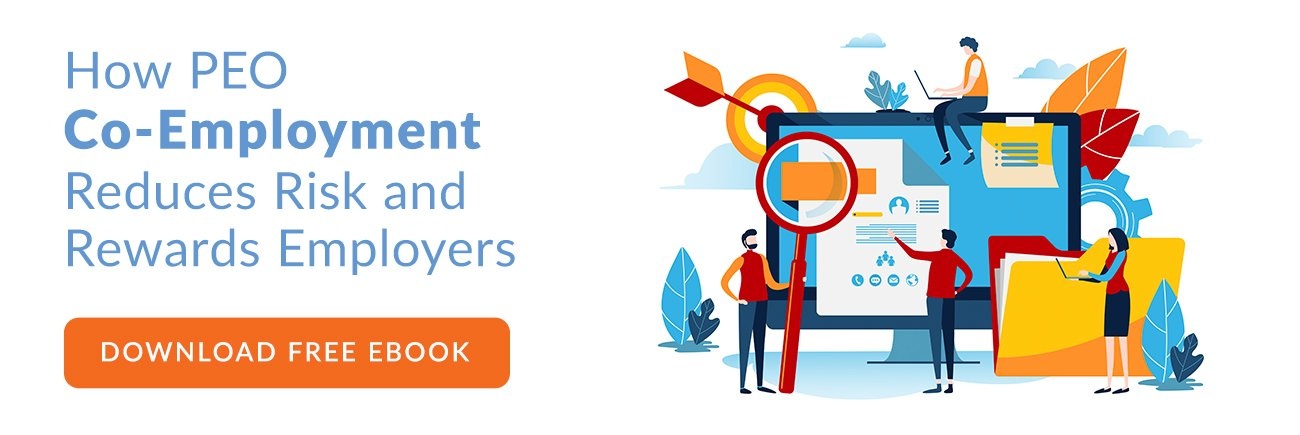The year 2023 brought a fresh wave of changes that Utah employers must adapt to in order to maintain compliance. One interesting emerging trend is the focus on creating safer and more inclusive workplaces.
For instance, the Utah Legislature passed a bill allowing employers to seek protective orders against violent workers and another that made immunity status a protected class under the Utah Antidiscrimination Act.
These changes underscore the importance of staying abreast of the latest developments in labor laws. Understanding these new laws is not just about compliance—it's about creating a work environment that respects and protects the rights of all employees.
As these new laws demonstrate, HR compliance is not a one-time task. Instead, it's an ongoing process that requires vigilance, adaptability, and a keen understanding of the legal landscape.
The first of these news laws is the Workplace Violence Protective Order. This law represents a significant step towards ensuring safer workplaces in Utah, and employers must understand its implications.
Law 1: Workplace Violence Protective Order (HB 324)
The first law Utah employers need to know is the Workplace Violence Protective Order (HB 324). This law, which took effect on May 9, 2023, provides a new mechanism for employers to protect their employees and workplaces from potential threats of violence.
Under this law, employers can now petition the court for a protective order if they believe an individual poses a credible threat of violence to their employees or workplace. The order can prohibit the individual from entering the workplace and contacting or harassing employees. This is a significant development, as it empowers employers to take proactive steps to ensure the safety of their workforce.
Moreover, the law also provides guidelines on what constitutes a credible threat of violence. This includes a pattern of behavior or actions that would cause a reasonable person to believe that the individual poses a threat. It's important to note that the threat doesn't have to be immediate or imminent.
This law is a game-changer for Utah employers, as it provides them with a legal tool to address potential threats of violence before they escalate.
However, questions remain about what happens if an employer recognizes a credible threat and does nothing. This is one arena where it pays to have HR compliance support from experts in Utah’s HR-related legislation.
Law 2: Immunity Status as a Protected Class (HB 131)
In a move that underscores the evolving landscape of labor laws, Utah's legislature passed House Bill 131 in 2023. This law, signed by Governor Spencer J. Cox on March 15, 2023, and effective from May 3, 2023, prohibits employers, government entities, and places of public accommodation from using an individual’s immunity status as a restriction.
The comprehensive law covers most private employers and prevents them from requiring proof of immunity or vaccination when making employment decisions. It specifically prohibits employers from discriminating against an individual based on vaccination status or whether the individual has an “immunity passport.”
This includes refusing employment, barring an individual from work, or discriminating against an individual in compensation or any term, condition, or privilege of employment.
However, there are exceptions to these prohibitions.
For instance, the restrictions on discrimination do not apply to federal contractors, regulated entities where compliance would result in a violation of binding, mandatory regulations, or jobs with specific vaccination requirements under state or federal law.
Like many others, the complexity of maintaining compliance with this law lies in its details and exceptions. Employers must stay informed and adapt their practices to avoid potential legal pitfalls.
Law 3: Hiring Mental Health Professionals (HB 468)
Utah's legislature has taken a significant step in 2023 to refine the hiring process with the enactment of the Hiring Mental Health Professionals (HB 468) law. This law is particularly relevant to private employers hiring mental health professionals.
Under this law, a private employer hiring a mental health professional may not exclude an applicant from an interview based on a juvenile adjudication, arrests that occurred before the individual was 18 years old, or an expunged criminal offense. This law is designed to provide a fair chance to individuals who have had encounters with the justice system in their youth, ensuring that these past incidents do not hinder their professional growth and opportunities.
However, there are exceptions to this rule. The law does not apply to private employers who are part of the criminal or juvenile justice system, are seeking non-employee volunteers, work with children or vulnerable adults, or whose primary purpose is performing financial or fiduciary functions.
The complexity of this law lies in its implementation. Employers must be diligent in understanding the nuances of this law to ensure they are in compliance. Missteps could lead to legal complications and potential damage to the company's reputation.
Law 4: Tip Pooling or Sharing Arrangement (SB 73)
In a move that simplifies distributing tips among employees, Utah passed SB 73, a law allowing employers to establish tip pools for non-tipped employees. This law, signed by Governor Spencer Cox on March 23 and effective May 3, 2023, broadens the definition of who can participate in tip pooling.
Previously, only employees who customarily and regularly received tips were included in such arrangements.
The intent of SB 73 is particularly beneficial for fast casual restaurants, where employees occasionally receive tips but not regularly enough to be classified as tipped employees under the previous law. This change allows these businesses to establish tip pools, ensuring a fairer distribution of tips among all staff members.
Compliance with this law involves understanding the new definitions and ensuring that tip-pooling arrangements are implemented correctly. Employers must know who qualifies as a tipped employee under this new law and adjust their tip pooling arrangements accordingly.
Navigating the intricacies of labor laws such as SB 73 can be challenging, but solutions are available to help employers stay compliant. Partnering with a Professional Employer Organization (PEO) can simplify HR compliance and help businesses adapt to new labor laws.
Solving HR Compliance with PEOs
A professional employer organization is a firm that provides comprehensive HR solutions for small to mid-sized businesses. They manage everything from payroll and benefits to compliance and risk management.
By partnering with a PEO, businesses can offload many of the time-consuming and complex tasks associated with HR, allowing them to focus on their core operations.
One of the key benefits of a PEO is their expertise in compliance. They stay up-to-date with the latest changes in labor laws, ensuring that your business remains compliant.
This is particularly valuable in light of the new laws passed in Utah in 2023. A PEO can help interpret these laws and implement necessary changes, reducing the risk of non-compliance.
Partnering with a PEO isn't just about compliance, though. It's about creating a better work environment. PEOs can help improve employee benefits, streamline HR processes, and create a more efficient and effective HR strategy. This can lead to higher employee satisfaction and retention, which is crucial in today's competitive job market.
Staying compliant is an ongoing process. It requires vigilance, expertise, and a proactive approach.



